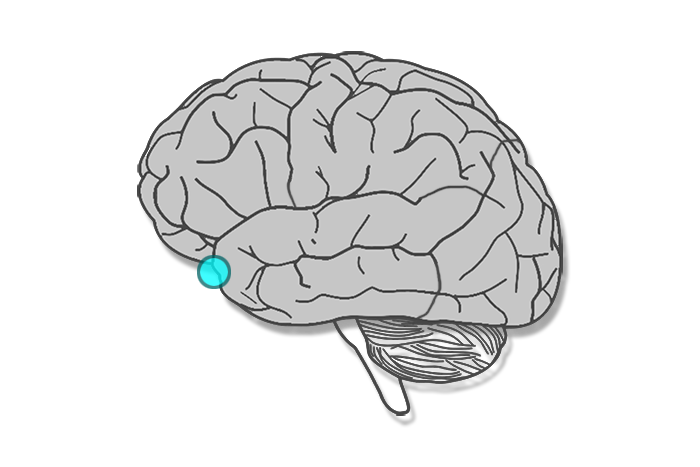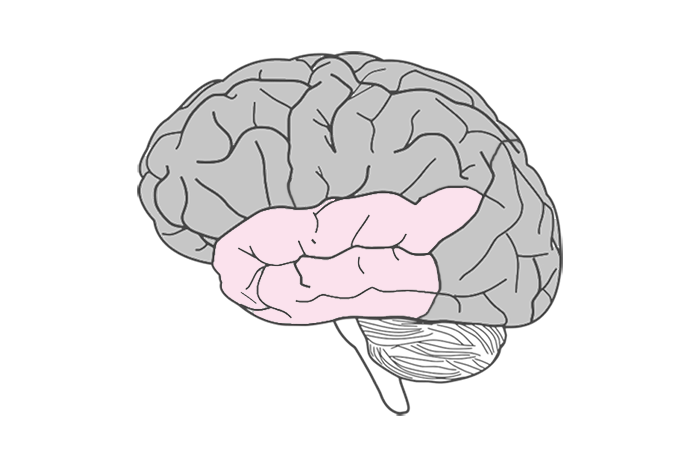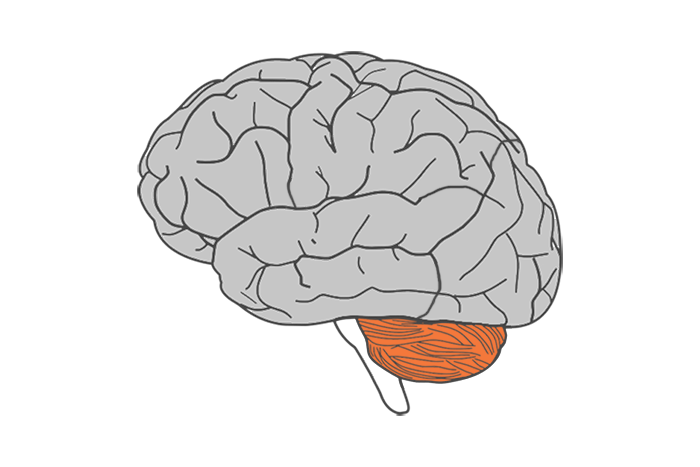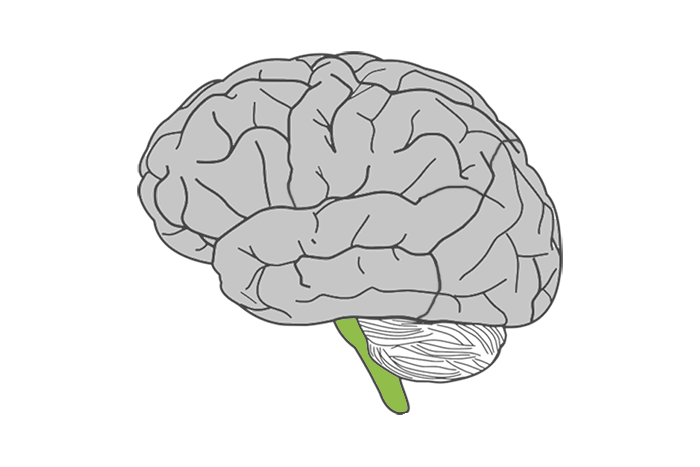Interactivity: illustrations
The brain develops from the bottom to the top and from the inside out. At first, basic physiological functions are developed. Reacting to hunger, pain, fear and cold takes priority followed by the mastery of emotions, and later on, the development of thinking or cognition.
The 4 parts of the brain involved in basic functions are the brain stem, cerebellum, thalamus and reticular formation. The 4 parts of the brain that control motivations and emotions are the hypothalamus, hippocampus, amygdala and pituitary.
What does this mean in a practical sense for infants? It means that crying, feeding, sleeping and filling their nappy are actions that are controlled by parts of the brain that are not under conscious control. Much of the behaviour of babies under 6 months old such as crying, being sick or wetting and soiling a nappy is not deliberate. On the other hand their developing brain is stimulated by their relationships with adults and behaviour can be reinforced by the actions of adults and so learnt.
Select the brain parts to learn more about the brain.
Thalamus - plays a role in regulating states of sleep and wakefulness and in relaying sensory information to the higher centres of the brain. It also plays a role in the regulation of motor functions.
Hypothalamus - important for regulation of autonomic function, some reflex behaviours, sleep and maintenance of the internal body environment.
Pituitary gland - under the influence of the hypothalamus, this gland secretes a range of hormones responsible for growth, metabolic control and fluid balance.
Hippocampus and amygdala - within the temporal lobe the hippocampus has important roles in short term memory, motivation and spatial awareness. The amygdala plays a role in regulating behaviours, especially those associated strongly with positive and negative emotions such as anxiety and fear.
Cerebellum - this controls essential body functions such as balance, posture and coordination, allowing humans to move properly and maintain their structure.
Brain Stem and reticular formation - many basic bodily functions are controlled by the brain stem, including heartbeat, blood pressure and breathing. The reticular formation controls levels of consciousness and activation. It also plays a role in the control of sleep.












